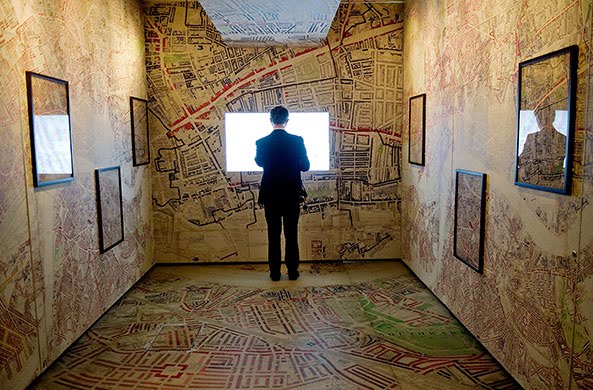
I am not going to provide too much description of how these quotes found their way into this post, except to say that I jot down memorable quotes from resources I consult for my research, even if (especially if) the larger book or article isn’t something I use. Sometimes these quotes just jump out at you and settle into that nice part of both your memory and your active intellect. You mull them over and delight in their turns of phrase. Sometimes I smile, even seethe a bit with envy that I didn’t write it. Either way, they inspired me and I hope they inspire or challenge you and that we all have the courage to follow where they want to lead.
I lead off with a paraphrase of Conrad taken from Jonah Lehrer:
“The most interesting places are the empty spaces, for they are what will change.”-Joseph Conrad (paraphrase taken from Jonah Lehrer’s “Proust Was a Neuroscientist” (p. 83). Canongate Books. Kindle Edition).
And the original Conrad line from Heart of Darkness:
“Now when I was a little chap I had a passion for maps. I would look for hours at South America, or Africa, or Australia, and lose myself in all the glories of exploration. At that time there were many blank spaces on the earth, and when I saw one that looked particularly inviting on a map (but they all look that) I would put my finger on it and say, `When I grow up I will go there.’ The North Pole was one of these places, I remember. Well, I haven’t been there yet, and shall not try now. The glamour’s off. Other places were scattered about the Equator, and in every sort of latitude all over the two hemispheres. I have been in some of them, and . . . well, we won’t talk about that. But there was one yet–the biggest, the most blank, so to speak– that I had a hankering after.”- Joseph Conrad
A quote on the liberating qualities of History. I found this one particularly profound as this is exactly the effect the study of History had on me. Just because they are, doesn’t mean they should be:
There is, perhaps, no more liberating influence than the knowledge that things have not always been as they are and need not remain so” -Brian Simon
The remaining quotes are heady stuff about language and the role of the writer and artist and meaning. They are all challenging, but good turns of phrase.
“As soon as a fact is narrated no longer with a view to acting directly on reality but intransitively, that is to say, finally outside of any function other than that of the very practice of the symbol itself, this disconnection occurs, the voice loses its origin, the author enters into his own death, writing begins. The sense of this phenomenon, however, has varied; in ethnographic societies the responsibility for a narrative is never assumed by a person but by a mediator, shaman or relator whose ‘performance’ – the mastery of the narrative code -may possibly be admired but never his ‘genius’.” (Roland Barthes, The Death of the Author)
What would a collection of quotes about language and writing be without a token representation from Foucault?
“Language is to thought and to signs what algebra is to geometry: it replaces the simultaneous comparison of parts (or magnitudes) with an order whose degrees must be transversed one after the other. It is in this strict sense that language is an analysis of thought: not a simple patterning, but a profound establishment of order in space” (Foucault, 1994,: 83)
The last is a pleasant voice amidst all the abstraction and chaos. Manovich gives us some agency in this process, saying we naturally want to create a structure for understanding information.
“Indeed, if after the death of God (Nietzche), the end of grand Narratives of Enlightenment (Lyotard), and the arrival of the Web (Tim Bernes-Lee), the world appears to us an endless and unstructured collection of images, texts, and other data records, it is only appropriate that we would want to develop a poetics, aesthetics, and ethics of this database’ (Lev Manovich, The Language of New Media, 219)
